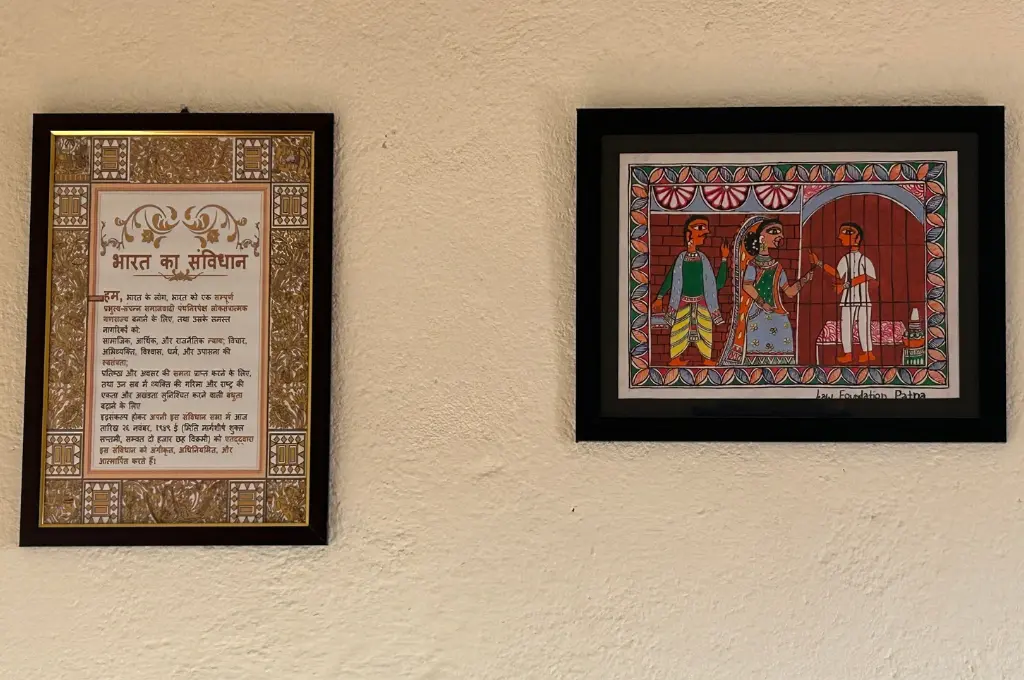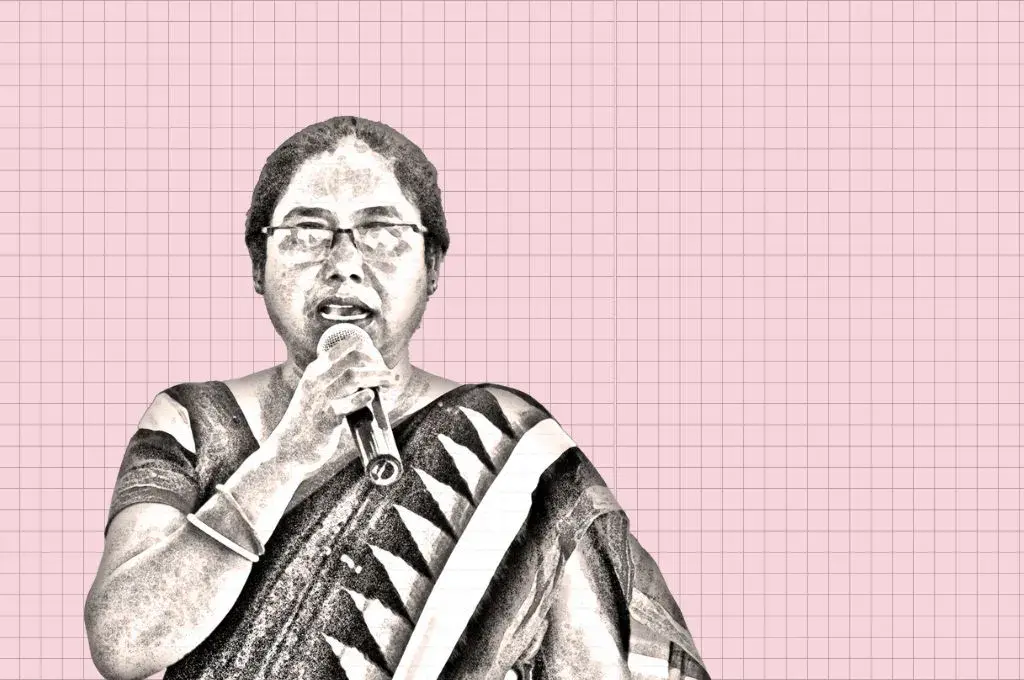The Constitution of India is more than just a legal framework that guarantees ‘equality before the law’ to historically marginalised communities. For nomadic and denotified tribe (NT-DNT) communities—who have faced systemic exclusion and prejudice since the colonial period, resulting in the invisibilisation of their issues—the Constitution serves as a custodian of their freedom and dignity.
I come from the Ghisadi Gadia Lohar community, a denotified tribe. The values enshrined in the Constitution are deeply intertwined with our identity—whether through the freedom movements we have led, how we practise freedom of expression, or our way of life. In Maharashtra, where I am from, the Constitution is called ‘Ghatna’. A common saying in our community is, “Amche pan hak Ghatna”—the Constitution is our right.
At Anubhuti, a nonprofit founded in 2016, we have been trying to make the language of the Constitution accessible to people from NT-DNT communities. By increasing accessibility, we aim to help these communities understand how the Constitution is already a fundamental part of their lives; how their knowledge is deeply embedded within its various aspects; and how rights related to education, land, housing, health, or protection from discrimination extend to them.
We have worked with Bahujan communities in rural, peri-urban, and urban areas for more than a decade. During this time, we have learned some important lessons on how organisations can make their constitutional literacy programmes democratic for the communities they serve. Here are some of our key learnings.
1. Break down the ‘mainstream’ language of the Constitution
In India, the production and dissemination of knowledge is largely a top-down process. Only the knowledge held by the elite—especially the upper castes and the upper classes—is considered legitimate and credible. However, a wealth of knowledge exists at the grassroots, rooted in the lived experiences of communities. But there are no channels to bring this knowledge into the mainstream discourse
The Constitution is not about memorising articles or laws; it’s about recognising how we live with dignity.
The language used to interpret and describe the Constitution is also owned by dominant voices, making it inaccessible to many. These voices are often the only ones considered credible.
At Anubhuti, we work to break this top-down and mainstream language to help communities understand the Constitution. We conduct workshops on constitutional values for people from NT-DNT groups. Initially, participation is often low because people think it’s going to be complicated. However, once we begin with introductions—using stories, games, and real-life examples—people start to engage. They realise that engaging with the Constitution is not about memorising articles or laws; it’s about recognising how we live with dignity.
Through discussions, participants learn that the fundamental duties outlined in the Constitution have long been embodied by them—even though the country sees them as abstract, secondary, or symbolic.
Similarly, while cultural discrimination, caste-based hierarchy, and religious marginalisation continue to intensify across society, such divisions are often less rigid within nomadic communities. As community members begin to understand this and connect the constitutional knowledge with their own life, they start to question the status quo. Young girls from these communities have asked me, “Why is our art not considered art?” That question itself is deeply democratic. It challenges the exclusion of their knowledge, expression, and way of life from prevailing definitions of culture and value.
2. Shift the burden of accessibility
Historically marginalised communities are not just excluded from dominant knowledge systems—they are also expected to bridge the gap on their own. The burden of accessibility always falls on those at the margins. They must struggle just to access systems that were never designed for them. This continued exclusion from knowledge systems leads to feelings of guilt and insecurity.
When asked about their community’s contribution to the freedom movement, many find it difficult to respond, feeling underconfident about their ancestors’ role.
This is because the history of these communities is not considered as part of the accepted narrative of the freedom struggle. Why has it never been widely acknowledged that approximately 200 Adivasi communities across India were imprisoned by the British, simply because they were seen as potential revolutionaries? Their distinct art, culture, language, and ways of life made them resilient, mobile, and capable of challenging colonial control.
Yet even today, discussions about NT-DNT communities often stop at acknowledging that they were criminalised. What is rarely confronted is that the Criminal Tribes Act was not merely an administrative tool—it was a political strategy to suppress communities whose contributions to the freedom struggle were significant. These communities faced some of the earliest and most widespread forms of mob lynching, exploitation, and state violence.
This is the history of the country—and we highlight it to help communities build their confidence.

3. Highlight action-based knowledge
Constitutional knowledge should not be restricted to terminologies and definitions. Instead, the community’s action-based knowledge should be highlighted. This goes beyond hosting conferences for one or two days.
For example, a woman from the Devadasi community, who has lived through the Devadasi tradition, now gathers 70 other women to declare, “We will not dedicate our daughters to this practice. We will not surrender them to gods.” This is experiential knowledge. When such powerful understanding already exists at the grassroots among Adivasis and other communities, our role is simply to help connect and show the community how best to leverage it.
In one of the settlements we work with, the community faced the threat of eviction. Some people wanted their basti (slum) demolished and resorted to throwing stones into homes every night to intimidate residents. As expected, tension and fear were mounting. In our earlier sessions, we had presented this exact scenario: If someone attacks you with a stone, will you respond with another stone or take a constitutional path? At the time, more than 90 percent said they would throw stones back.
Adivasi knowledge of the Constitution may differ from urban or upper-caste interpretations, but that does not mean it doesn’t exist.
However, when informed of the rights granted by the Constitution, the community chose a different path. They went to the police station, submitted a letter, remained persistent, and approached community leaders. This helped resolve the matter non-violently even though the community was being directly attacked. That’s because community members had internalised the Constitution as more than a text—they saw it as a way of life.
Adivasi knowledge of the Constitution may differ from urban or upper-caste interpretations, but that does not mean it doesn’t exist. We tap into the community’s knowledge to enrich the discussion, and then connect it back to the Constitution.
4. Support community leaders
If an organisation is working on constitutional literacy at the grassroots, then it should be led by the people from the community. For instance, our communities are among the ones worst affected by climate change. Yet, awareness programmes and capacity-building efforts for Adivasi communities are often carried out by outsiders.
Those conducting such programmes assume that people in villages don’t understand terms like ‘freedom’, ‘equality’, or ‘constitutional rights’. But in Maharashtra, words such as ‘freedom’ and ‘brotherhood’ hold deep emotional significance that escapes the contours of academic jargon.
Many fieldworkers from the community, despite having worked on the ground for decades, believe that they do not possess knowledge or have anything to contribute intellectually. They have been made to think that their contribution is limited to labour, and that their job is not idea production but only mobilisation.
But it is their knowledge that is rooted in the democratic principles of the Constitution. It emerges through stories, everyday practices, folk songs, interactions, and community life.
During COVID-19, when Anubhuti was engaged in relief work, it wasn’t possible to go to every house and distribute ration directly. So, we built a bridge of leadership by connecting with community leaders—approximately 250 in number—across nomadic, Scheduled Caste, and Dalit communities. With their efforts, we were able to channel resources worth INR 2–3 lakh for each of these communities. But our funders asked us, “What guarantee do you have that the ration will reach the right people?”
We later learned that these community leaders distributed kits—say, 100 per location—into settlements with 200 or more people. They made a priority list of those in need of the resources: pregnant women, single mothers, persons with disabilities, elderly people.
That is where I witnessed the living expression of what the Constitution means by social justice, intersectionality, and feminism. The community leaders from marginalised communities had not studied these concepts in a university, yet they embody these principles in their everyday practices.
Organisations working on constitutional literacy should not go to the grassroots with the intention of ‘giving’ knowledge. Instead, this process must be based on collaboration. At Anubhuti, we always ensure that we don’t gather community groups under our banner because their identity on the ground matters.
Constitutional literacy is not a one-way process. It requires listening to and learning from the knowledge of the communities present on the ground, recognising its value, and supporting their access to rights from which they have long been excluded.
—





